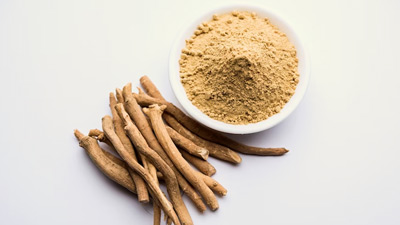
Ashwagandha is an adaptogenic herb which is commonly used in traditional Ayurvedic medicine, and has been studied for its potential benefits in promoting relaxation and managing stress, which are factors that can contribute to insomnia. There is ongoing research the effects of ashwagandha on sleep are still evolving, some studies suggest that it may have a positive impact on certain aspects related to sleep.
Table of Content:-
Dr Ganesh Chaudhary, Bachelor of Ayurvedic Medicine and Surgery, PHC, Darbhanga, Bihar, explained some ways in which ashwagandha may potentially contribute to preventing or alleviating insomnia:
It Reduces Stress
‘Ashwagandha is known for its adaptogenic properties, meaning it may help the body adapt to stress and maintain balance,” said Dr Chaudhary, adding, chronic stress can be a significant contributor to insomnia, and by reducing stress levels, ashwagandha may indirectly support better sleep.

Helps To Regulate Cortisol
“Ashwagandha has been studied for its potential to regulate cortisol levels. Cortisol is a hormone associated with the body's stress response, and imbalances in cortisol levels can impact sleep patterns. By modulating cortisol, ashwagandha may contribute to a more relaxed state conducive to sleep,” said Dr Chaudary.
Also read: Ayurveda and Liver Health: Expert Lists Ayurvedic Herbs And Remedies For Liver Problems
Known For Its Anxiolytic
Some research suggests that ashwagandha may have anxiolytic (anxiety-reducing) effects. Anxiety and worry can interfere with the ability to fall asleep, and by promoting a sense of calmness, ashwagandha may indirectly support better sleep quality.
Improves Sleep Quality
Limited studies have indicated that ashwagandha may contribute to improved sleep quality. Participants in some trials reported better sleep and reduced insomnia symptoms after taking ashwagandha supplements.
GABA Receptor Modulation
Ashwagandha may interact with gamma-aminobutyric acid (GABA) receptors in the brain. GABA is an inhibitory neurotransmitter that has a calming effect on the central nervous system. Modulation of GABA receptors could contribute to relaxation and improved sleep.
Also read: Ayurveda For Diabetes: Expert Shares 4 Drinks You Should Consume On An Empty Stomach
It is crucial to note that, while these potential advantages are intriguing, additional research is needed to determine the efficacy of ashwagandha as a sole treatment for insomnia. Furthermore, individual responses to herbal supplements might vary, so what works for one person may not work for another.If you are considering using ashwagandha or any herbal supplement to address sleep issues, it's advisable to consult with a healthcare professional. They can provide personalised advice based on your health status, potential interactions with medications, and other individual factors. Lifestyle factors, sleep hygiene practices, and addressing underlying health conditions should also be considered as part of a comprehensive approach to managing insomnia.
Also watch this video
How we keep this article up to date:
We work with experts and keep a close eye on the latest in health and wellness. Whenever there is a new research or helpful information, we update our articles with accurate and useful advice.
Current Version